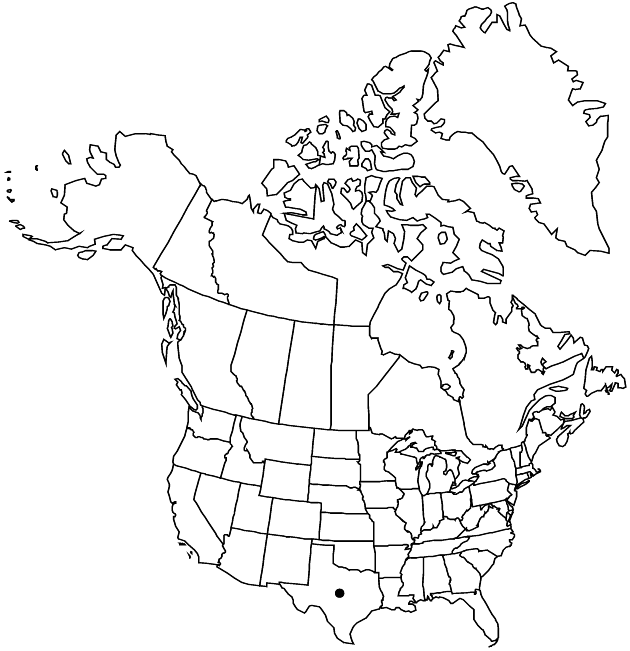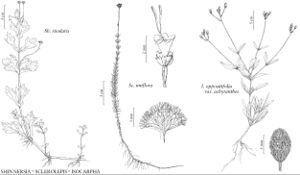Difference between revisions of "Shinnersia rivularis"
Phytologia 19: 297. 1970.
Common names: Rio Grande bugheal
Basionym: Trichocoronis rivularis A. Gray Mem. Amer. Acad. Arts, n. s. 4: 66. 1849
Treatment appears in FNA Volume 21. Treatment on page 488.
FNA>Volume Importer |
FNA>Volume Importer |
||
| Line 67: | Line 67: | ||
|publication year=1970 | |publication year=1970 | ||
|special status= | |special status= | ||
| − | |source xml=https://jpend@bitbucket.org/aafc-mbb/fna-data-curation.git/src/ | + | |source xml=https://jpend@bitbucket.org/aafc-mbb/fna-data-curation.git/src/f50eec43f223ca0e34566be0b046453a0960e173/coarse_grained_fna_xml/V19-20-21/V21_1231.xml |
|tribe=Asteraceae tribe Eupatorieae | |tribe=Asteraceae tribe Eupatorieae | ||
|genus=Shinnersia | |genus=Shinnersia | ||
Revision as of 20:33, 16 December 2019
Plants rooted in muck; rhizomes relatively long. Stems commonly submerged except for terminal 10 cm or less. Leaves mostly 2–4 cm. Heads borne out of water. Corollas ca. 2 mm. Cypselae ca. 2 mm. 2n = 60.
Phenology: Flowering (Dec–)Mar–May(–Aug).
Habitat: Water along streams, in slow-moving water (to 1 m deep) arising from calcareous outcrops
Elevation: 50–3000 m
Distribution

Tex., Mexico (Coahuila, Nuevo León).
Discussion
Shinnersia rivularis has been treated within Trichocoronis. The genera differ in features noted in the couplet below. Sclerolepis, of the southeastern United States, apparently also is closely related, and its recognition as separate reinforces recognition of Shinnersia.
Selected References
None.
Lower Taxa
None.
Key
| 1 | Heads borne singly, from axils of primary leaves; involucres 5–6 mm; corollas infundibular, tubes relatively long; cypselae sparsely gland-dotted and with forked hairs; carpopodia oblique; pappi 0. | Shinnersia |
| 1 | Heads usually in loose or open, corymbiform, bracteate arrays; involucres 2–3 mm; corollas tubular-funnelform, tubes relatively short; cypselae eglandular, scabrellous on angles, without forked hairs; carpopodia at right angles; pappi persistent, of 2–6 setiform scales. | Trichocoronis |
